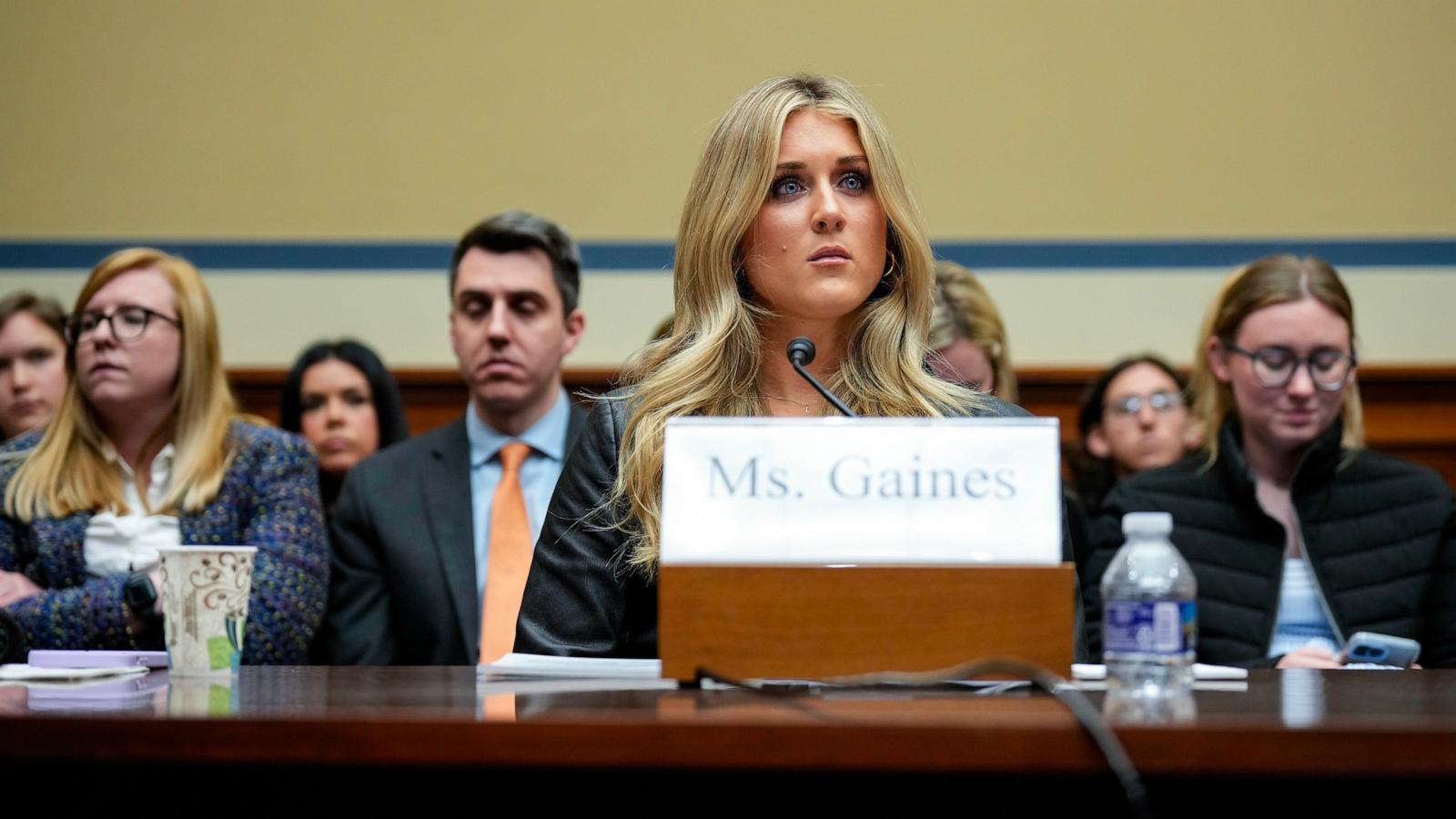
The realm of college athletics has long been a stage where issues of fairness, inclusion, and competition are debated. In a recent turn of events, Riley Gaines among more than a dozen college athletes suing NCAA over transgender policies has thrust these discussions into the spotlight once more. This lawsuit, poised to be a landmark case, challenges the current policies of the National Collegiate Athletic Association (NCAA) regarding transgender athletes’ participation in college sports.
The Context
The inclusion of transgender athletes in sports has been a contentious topic. Advocates for inclusion argue that transgender athletes should have the same rights to participate in sports as their cisgender peers. Conversely, some athletes and coaches believe that current policies do not adequately address issues of fairness and competitive balance. The NCAA’s current policy allows transgender women to compete in women’s sports after completing one year of testosterone suppression treatment.
The Lawsuit
Riley Gaines among more than a dozen college athletes suing NCAA over transgender policies signifies a significant pushback against the association’s stance. These athletes, hailing from various universities across the country, argue that the current policies compromise the integrity of women’s sports. They contend that allowing transgender women to compete against cisgender women creates an uneven playing field due to physiological differences that remain even after hormone therapy.
Gaines, a prominent college swimmer, has become the face of this legal challenge. She and her co-plaintiffs assert that the NCAA’s policies are discriminatory against cisgender female athletes, potentially undermining years of progress made in women’s sports since the enactment of Title IX. This federal law, passed in 1972, prohibits sex-based discrimination in any school or educational program receiving federal funding, and has been instrumental in increasing opportunities for female athletes.
Legal Arguments
The plaintiffs’ case hinges on several key arguments:
- Biological Advantages: They argue that even after hormone therapy, transgender women retain physical advantages over cisgender women, such as bone density and muscle mass, which can impact performance in sports. This, they claim, creates an unfair competitive environment.
- Title IX Violations: The lawsuit contends that the NCAA’s policies violate Title IX by failing to protect the rights of cisgender female athletes to compete on an equal footing. They argue that these policies effectively discriminate against female athletes by allowing individuals with inherent physiological advantages to compete in women’s sports.
- Safety Concerns: Some plaintiffs have raised concerns about the safety implications of allowing transgender women to compete in contact sports with cisgender women, citing potential risks due to physical disparities.
NCAA’s Position
The NCAA has defended its policies, arguing that they are based on scientific evidence and aim to strike a balance between inclusion and fairness. The association maintains that its guidelines are designed to provide equal opportunities for transgender athletes while ensuring competitive equity. The NCAA also points to the importance of fostering an inclusive environment where all athletes feel welcome and respected.
Public Reaction
The lawsuit has elicited a wide range of responses from the public, athletes, and advocacy groups. Supporters of the lawsuit argue that the current policies are unfair to cisgender female athletes and undermine the principles of fair competition. They believe that maintaining separate categories for male and female athletes is essential to preserving the integrity of women’s sports.
Conversely, advocates for transgender rights view the lawsuit as an attack on the rights of transgender individuals to participate fully in society, including in sports. They argue that transgender athletes face significant challenges and discrimination, and that inclusive policies are necessary to ensure their full participation in athletic opportunities.
Implications for College Athletics
The outcome of Riley Gaines among more than a dozen college athletes suing NCAA over transgender policies could have far-reaching implications for college athletics. If the plaintiffs prevail, the NCAA may be forced to revise its policies, potentially leading to stricter guidelines for transgender athletes’ participation in sports. This could include longer periods of hormone therapy or other criteria to ensure competitive fairness.
Such changes could also prompt other athletic organizations, from high schools to professional leagues, to reevaluate their policies regarding transgender athletes. The ripple effects could impact how sports organizations balance inclusivity with competitive fairness, setting new precedents in the evolving landscape of sports.
Broader Societal Impact
Beyond the world of athletics, this lawsuit touches on broader societal issues related to gender identity, equality, and discrimination. It underscores the ongoing debate about how best to integrate transgender individuals into various aspects of public life while respecting the rights and concerns of all parties involved.
The case also highlights the need for continued dialogue and research to understand the implications of transgender participation in sports. It calls for nuanced solutions that consider the complexities of gender identity, biology, and fairness in competition.
Moving Forward
As the legal battle unfolds, it is clear that Riley Gaines among more than a dozen college athletes suing NCAA over transgender policies will be closely watched by all stakeholders in the sports community. The case has the potential to redefine the landscape of college athletics and influence policies at all levels of competition.
For now, the focus remains on the courtroom, where the arguments for and against the NCAA’s current policies will be rigorously examined. Whatever the outcome, this case is a pivotal moment in the ongoing conversation about inclusion, fairness, and the future of sports in an increasingly diverse society.
Conclusion
The lawsuit featuring Riley Gaines among more than a dozen college athletes suing NCAA over transgender policies represents a critical juncture in the discourse surrounding sports, gender, and equality. As society grapples with these complex issues, the importance of finding balanced, fair, and inclusive solutions cannot be overstated. The resolution of this case will likely have profound implications, not just for college athletics, but for the broader societal understanding of gender and competition.







